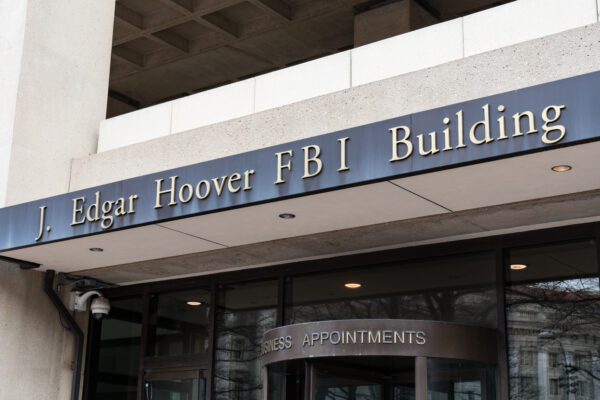By Adeline Lee, Paralegal, ACLU Speech, Privacy, and Technology Project & Laura Moraff, Brennan Fellow, ACLU Speech, Privacy, and Technology Project
The FBI has refused to confirm or deny if it has recent records about its practice of requiring local police to sign strict nondisclosure agreements prior to purchasing invasive cell phone tracking technology. But the FBI acknowledged imposing these NDAs on local police years ago, and even recognized problems created by the practice. So what is the FBI trying to hide now? And do the feds really not appreciate the irony of refusing to confirm or deny the existence of secrecy agreements? The public deserves to know, and we’re suing to find out.
Cell site simulators — also known as “Stingrays” or “IMSI catchers” — function by mimicking signals sent from a cell tower and forcing mobile phones in the area to communicate with them. They permit law enforcement to track individuals even when they’re somewhere that’s typically protected from warrantless searches, like a home. Regardless of law enforcement’s intended target, cell site simulators collect data from all phones in their vicinity and can also interfere with nearby phones’ connections to the cellular network.
For decades, law enforcement agencies across the country have used Stingrays to locate and track people in all manner of investigations, from local cops in Annapolis trying to find a guy who nabbed 15 chicken wings from a delivery driver, to ICE tracking down undocumented immigrants in New York and Detroit. But until a few years ago, even the existence of this technology was shrouded in near-complete secrecy. As it turns out, the FBI went to great lengths to prevent knowledge of cell site simulators from entering public awareness, requiring state and local law enforcement agencies to sign nondisclosure agreements before purchasing the technology — a practice it now refuses to confirm or deny if it has continued. These agreements not only prevented cops from revealing their purchase or use of the technology to the public, but it even forced them hide it from judges and defense attorneys in court proceedings.
After the ACLU, journalists, and others successfully forced release of copies of the NDAs through public records requests, judges and lawmakers started learning about the previously secret surveillance and criticized the FBI for imposing such draconian secrecy. As one court put it, “such an extensive prohibition on disclosure of information to the court .. . prevents the court from exercising its fundamental duties under the Constitution.” The FBI itself acknowledged the practice and tried to distance itself from the knots local police had tied themselves in attempting to comply with the NDA’s secrecy requirements including going as far as dismissing criminal prosecutions instead of revealing accurate information about tech surveillance to criminal defense lawyers.
The problems posed by cell site simulators have been largely out of the spotlight for a few years, but recent reporting indicates that while police departments have started buying cell site simulators from new sources, the public lacks information about whether the FBI continues to impose secrecy requirements on local cops. In January 2021, the ACLU submitted a FOIA request to the FBI asking the agency to release any nondisclosure agreements entered into since 2018 to keep state and local law enforcement’s purchase and use of cell site simulators secret, as well as information about other conditions imposed on local police when they purchase and use the technology.
Normally, federal agencies must respond to FOIA requests by searching for responsive records and releasing them to the requester, with narrow redactions of legitimately secret information if necessary. But in response to our request, the FBI issued a “Glomar response,” meaning they refused to confirm or deny the existence of any responsive records. Glomar responses are only legal in rare situations where disclosing the existence (or non-existence) of the requested records would itself reveal information that is exempt from disclosure under FOIA.
In this case, the FBI’s Glomar response doesn’t come close to passing the sniff test. The FBI merely claimed, without explanation, that disclosing whether it has any nondisclosure agreements about cell site simulators “would disclose the existence or non-existence of non-public law enforcement techniques, procedures, and/or guidelines.” It is true that non-public law enforcement techniques, procedures, and guidelines can sometimes be exempt from disclosure under FOIA. But the fact of whether the FBI has continued to impose nondisclosure agreements and other conditions on local and state police isn’t a secret law enforcement technique or procedure — it’s basic information about whether the government is evading foundational transparency requirements we expect in a democratic society. And it’s something the FBI has already publicly admitted to doing.
This is not the first time we’ve seen efforts to keep information about cell site simulators secret devolve into farce. In fact, this secrecy on top of secrecy (a Stingray secrecy sandwich, if you will) would be silly if it wasn’t so offensive to basic notions of government transparency — and illegal.
The public has a right to know whether the FBI is continuing to require law enforcement agencies to withhold information regarding invasive surveillance technology. We’re suing so that information reaches the light of day.

